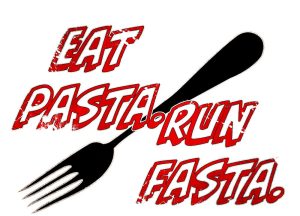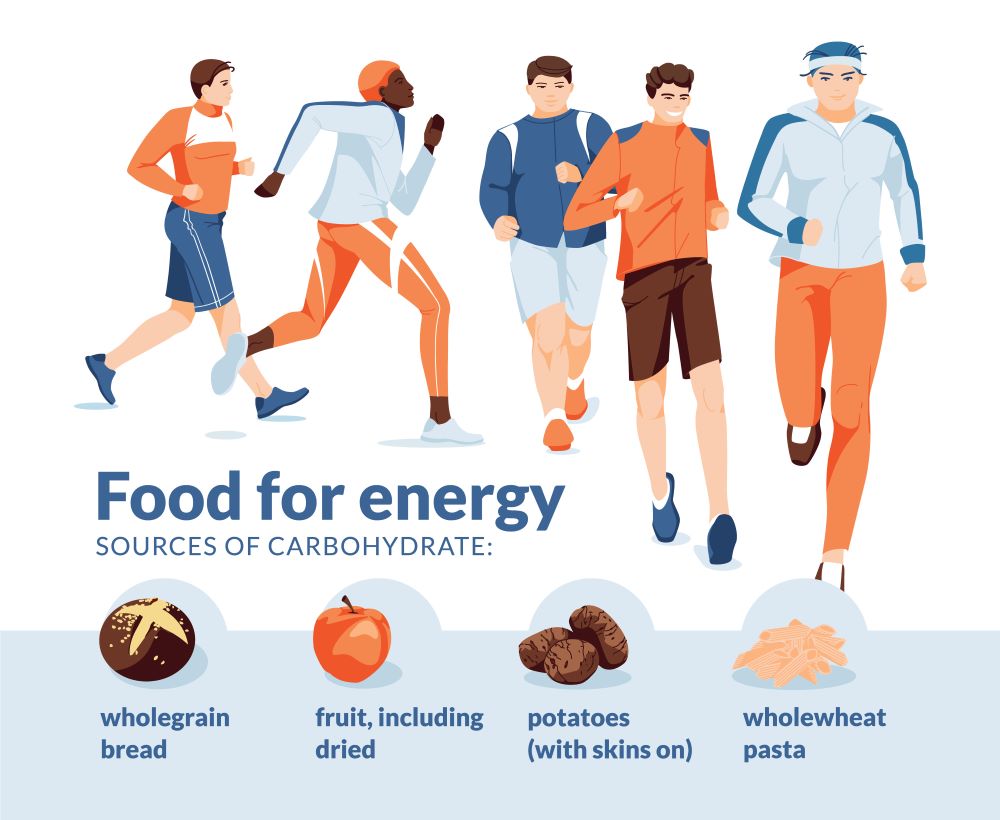So, what should a runner eat before a marathon? The answer is not straightforward as it depends on various factors such as the individual’s body type, the distance of the marathon, and the time of the day the race is scheduled. However, runners can follow some general guidelines to ensure that they are fueling their bodies with the right food.
In this article, we will explore what to eat before a marathon. We will discuss the different types of food runners should consume to ensure their body has enough energy to last the entire race. We will also look at the timing of the meal and the quantity of food that should be consumed. By the end of this article, runners will better understand what they should eat before a marathon to ensure that they perform at their best.
Understanding Marathon Nutrition
Nutrition plays a crucial role in marathon training and performance. What you eat before a marathon can significantly impact your energy levels, endurance, and overall performance.
Carbohydrates are the primary source of energy for your body during a marathon. Consuming carb-rich foods before the race is essential to ensure that your body has enough fuel to sustain you throughout the run. Aim to consume 3-4 grams of carbohydrates per pound of body weight in the 24-48 hours leading up to the race.
Protein is also important for marathon runners as it helps repair and rebuild muscle tissue. However, consuming protein in moderation before the race is recommended as it can be harder to digest and may cause stomach discomfort.
Fiber is another essential nutrient that should be consumed in moderation before the race. While fiber is crucial for overall health, consuming too much of it before a marathon can cause digestive issues and discomfort.
Calories are essential for providing your body with the energy it needs to complete a marathon. However, it is important to strike a balance between consuming enough calories and not overeating. Consuming too many calories before the race can lead to feeling sluggish and heavy during the run.
In addition to carbohydrates, protein, fiber, and calories, it is also important to consume a variety of vitamins, minerals, and amino acids before the marathon. These nutrients help support overall health and can help improve performance.
Overall, understanding marathon nutrition is crucial for runners looking to perform their best on race day. By consuming a balanced diet rich in carbohydrates, protein, and other essential nutrients, runners can ensure their bodies have the fuel they need to succeed.
The Importance of Carbohydrate Loading
Carbohydrate loading is an essential aspect of marathon preparation. It involves increasing the intake of carbohydrates to maximize the body’s glycogen stores, which are the primary source of energy during a marathon.
What is Carb Loading?
Carb loading, also known as carbo-loading or carb load, is a nutritional strategy that involves increasing the intake of carbohydrates in the days leading up to a marathon. The goal of carb loading is to saturate the body’s glycogen stores, which are the primary source of energy during prolonged exercise.
How to Carb Load

To carb load effectively, one should increase their carbohydrate intake gradually in the days leading up to the marathon. This allows the body to adjust to the increased carbohydrate intake and maximize glycogen stores.
Here are some tips for effective carb loading:
- Start carb loading 3-4 days before the marathon
- Increase carbohydrate intake to 7-10 grams per kilogram of body weight per day
- Choose healthy carbohydrate sources such as whole grains, fruits, and vegetables
- Avoid high-fat foods, as they can slow down digestion and impair glycogen storage
- Drink plenty of fluids to ensure proper hydration
By following these tips, one can effectively carb load and maximize their glycogen stores for optimal marathon performance.
What to Eat Before a Marathon
Preparing for a marathon requires a lot of effort, and one of the most important aspects is nutrition. Eating the right foods before a race can help runners maintain their energy levels and perform at their best. Here are some guidelines on what to eat before a marathon.
Week Before the Race
In the week leading up to the race, runners should focus on eating whole, nutrient-dense foods. This includes plenty of fruits, vegetables, whole grains, lean protein, and healthy fats. Staying hydrated is also important by drinking plenty of water and electrolyte-rich beverages.
Some good options for meals during this time include brown rice and vegetable stir-fry, quinoa salad with roasted vegetables, and grilled chicken with sweet potato and green beans.
Day Before the Race
The day before the race is not the time to experiment with new foods or try to make up for poor nutrition earlier in the week. Instead, runners should focus on eating familiar, easily digestible foods that they know won’t upset their stomachs.
Some good options include pasta with a light tomato sauce, a bagel with peanut butter and banana, or oatmeal with fruit and nuts. It’s also important to continue drinking plenty of water and electrolyte-rich beverages.
The Morning of the Race
On the morning of the race, runners should aim to eat a meal that is high in carbohydrates and low in fat and fiber. This will provide the energy they need to perform at their best without causing digestive issues.
Some good options include a bowl of cereal with milk and fruit, a bagel with cream cheese, or scrambled eggs with toast and fruit. It’s also important to continue hydrating with water and electrolyte-rich beverages.
In summary, runners should focus on eating whole, nutrient-dense foods in the week leading up to the race, stick to familiar, easily digestible foods the day before the race, and eat a high-carbohydrate, low-fat, and low-fiber meal on the morning of the race. By following these guidelines, runners can ensure they have the energy they need to perform at their best.
Hydration and Electrolytes
Staying hydrated is crucial for any athlete, especially during a marathon. Adequate hydration helps to regulate body temperature, lubricate joints, and transport nutrients throughout the body. When it comes to marathon training, drinking enough water and replenishing electrolytes lost through sweat is essential.
Electrolytes are minerals in the body that have an electric charge. The most important electrolytes for athletes are sodium, potassium, calcium, and magnesium. These minerals help maintain fluid balance, muscle function, and nerve function.
Sports drinks are a popular choice for athletes during long-distance running. These drinks contain electrolytes and carbohydrates, which help to replenish lost fluids and provide energy. However, choosing a sports drink with the right balance of electrolytes and carbohydrates is important. Too much sugar can cause stomach upset, while too little electrolytes can lead to dehydration.
In addition to sports drinks, milk can also be a good source of hydration and electrolytes. Milk contains calcium, potassium, and sodium, which are all important for athletes. Plus, it’s a great source of protein, which can help repair and rebuild muscles after a long run.
During a marathon, drinking fluids regularly is important, even if you don’t feel thirsty. Aim to drink at least 16 ounces of fluid per hour, and consider carrying a sports drink or water bottle with you during the race. If you’re concerned about dehydration, weigh yourself before and after your run to see how much fluid you’ve lost.
Overall, staying hydrated and replenishing electrolytes is essential for a successful marathon. Ensure you drink enough fluids and choose the right sports drink or milk to keep your body performing at its best.
Energy Supplements and Gels
Energy supplements and gels are popular among runners as they provide a quick burst of energy and are easy to consume during a marathon. These gels contain simple carbohydrates like glucose and fructose that are quickly absorbed by the body and converted into energy.
 Most energy gels come in small packets and can be easily carried in a pocket or a hydration belt. They are available in various flavors like chocolate, vanilla, and fruit.
Most energy gels come in small packets and can be easily carried in a pocket or a hydration belt. They are available in various flavors like chocolate, vanilla, and fruit.
However, it is important to note that energy gels should not be used as a substitute for real food. They are designed to provide a quick energy boost and should be consumed along with a balanced diet.
Consuming energy gels at regular intervals during a marathon, starting from the 45-minute mark is recommended. Drinking water and the gel is also important to avoid dehydration.
While energy gels can be a great addition to a runner’s diet, testing them out during training runs is important to see how the body reacts to them. Some runners may experience stomach discomfort or other side effects from consuming energy gels, so finding the right product that works for you is important.
Overall, energy supplements and gels can be a valuable tool for runners to maintain their energy levels during a marathon. Still, they should be used in moderation and in conjunction with a balanced diet.
Recovery and Refueling Post-Marathon
Immediate Post-Race Meal
After completing a marathon, it is crucial to refuel and recover properly. The first step in this process is to consume an immediate post-race meal. This meal should be consumed within 30 minutes to an hour after the race and contain a mix of carbohydrates and protein. Carbohydrates will help replenish glycogen stores, while protein will aid in muscle recovery.
Some examples of good immediate post-race meals include:
- A banana with peanut butter and a bagel
- A protein shake with a banana and some granola
- A turkey sandwich on whole wheat bread with a piece of fruit
It is important to avoid consuming too much fiber or fat in the immediate post-race meal, as these can slow down digestion and delay the recovery process.
Post-Race Recovery Diet
In addition to the immediate post-race meal, it is important to maintain a healthy and balanced diet during the recovery process. This will help replenish glycogen stores, repair muscle damage, and reduce inflammation.
Some tips for a post-race recovery diet include:
- Consuming plenty of carbohydrates to replenish glycogen stores
- Eating lean protein to aid in muscle recovery
- Incorporating healthy fats, such as those found in avocados and nuts, to reduce inflammation
- Drinking plenty of water to stay hydrated and aid in digestion
Listening to your body and adjusting your diet is also important. Some runners may need more carbohydrates or protein than others, depending on their individual needs.
A proper recovery and refueling plan is essential for any marathon runner. By consuming an immediate post-race meal and maintaining a healthy diet during recovery, runners can refuel and recover properly and get back to training as soon as possible.
Common Tummy Troubles and How to Avoid Them
Marathon runners often experience gastrointestinal distress, commonly known as “tummy troubles,” during or after the race. This can be caused by various factors, including dehydration, overeating, or consuming foods high in fat or fiber. Here are some tips to avoid tummy troubles before a marathon:
- Avoid high-fiber foods: Foods high in fiber, such as beans, broccoli, and whole grains, can cause bloating and gas. Avoid these foods in the days leading up to the marathon.
- Stay hydrated: Dehydration can cause constipation and other digestive issues. Drink plenty of water in the days leading up to and during the race itself.
- Eat small, frequent meals: Eating large meals can cause stomach discomfort and bloating. Instead, eat small, regular meals throughout the day to keep your energy levels up without overloading your digestive system.
- Stick to familiar foods: Don’t try any new foods or drinks on race day. Stick to foods and drinks that you know your body can handle.
- Avoid high-fat foods: Foods high in fat, such as fried foods and creamy sauces, can take longer to digest and cause stomach discomfort. Stick to lean proteins and low-fat foods in the days leading up to the race.
By following these tips, runners can avoid tummy troubles and have a more comfortable race experience.
Marathon Training Diet
Training for a marathon requires a lot of hard work and dedication, and one of the most critical aspects of this process is maintaining a healthy and balanced diet. A good nutrition plan can help you get the most out of your training and ensure your body is adequately fueled for the race.
Endurance athletes like marathon runners need to consume a diet high in carbohydrates, as these are the primary fuel source for the body during exercise. It is recommended that runners consume between 3-5 grams of carbohydrates per pound of body weight each day during training.
In addition to carbohydrates, runners must consume protein to help repair and rebuild muscle tissue. It is recommended that runners consume 0.5-0.7 grams of protein per pound of body weight daily.
It is also important to consume healthy fats, as these can help provide sustained energy during long runs. Foods like nuts, seeds, avocados, and olive oil are all good sources of healthy fats.
In the days leading up to the marathon, runners should focus on consuming foods that are easy to digest and won’t cause any gastrointestinal distress. This may include pasta, rice, bread, and fruits and vegetables.
On the morning of the marathon, runners should aim to consume a meal that is high in carbohydrates and low in fat and fiber. This may include foods like oatmeal, bananas, and toast with jam.
Overall, a well-rounded and balanced diet is vital to successful marathon training. By consuming a diet high in carbohydrates, protein, and healthy fats, runners can ensure that their bodies are properly fueled for the race.
The Role of Proteins and Fats
Proteins and fats are essential macronutrients that are crucial in providing energy and building blocks for the body. They are essential for marathon runners as they help optimize performance and aid recovery.
Proteins
Proteins are essential for building and repairing muscle tissue. They also play a crucial role in maintaining the body’s immune system, hormone production, and enzyme function. Marathon runners should aim to consume protein-rich foods before and after their race to aid in muscle recovery and repair.
Some good sources of protein include:
- Meat (chicken, turkey, beef)
- Fish (salmon, tuna)
- Nuts (almonds, cashews)
- Nut butter (peanut butter, almond butter)
- Beans (black beans, lentils)
It is important to note that while protein is important, it should not be the main focus of a pre-race meal. Too much protein can be challenging to digest and cause discomfort during the race.
Fats
Fats are an important energy source for the body, especially during endurance activities like a marathon. They are also crucial for maintaining healthy skin and hair and aiding in the absorption of vitamins and minerals.
Some good sources of healthy fats include:
- Avocado
- Nuts (walnuts, almonds)
- Nut butter (peanut butter, almond butter)
- Olive oil
- Coconut oil
It is important to note that a high-fat diet is not recommended for marathon runners. While fats are important, they should be consumed in moderation and in combination with other macronutrients.
In conclusion, marathon runners should aim to consume a balanced meal that includes a combination of carbohydrates, proteins, and fats. This will help to optimize performance and aid in recovery.


